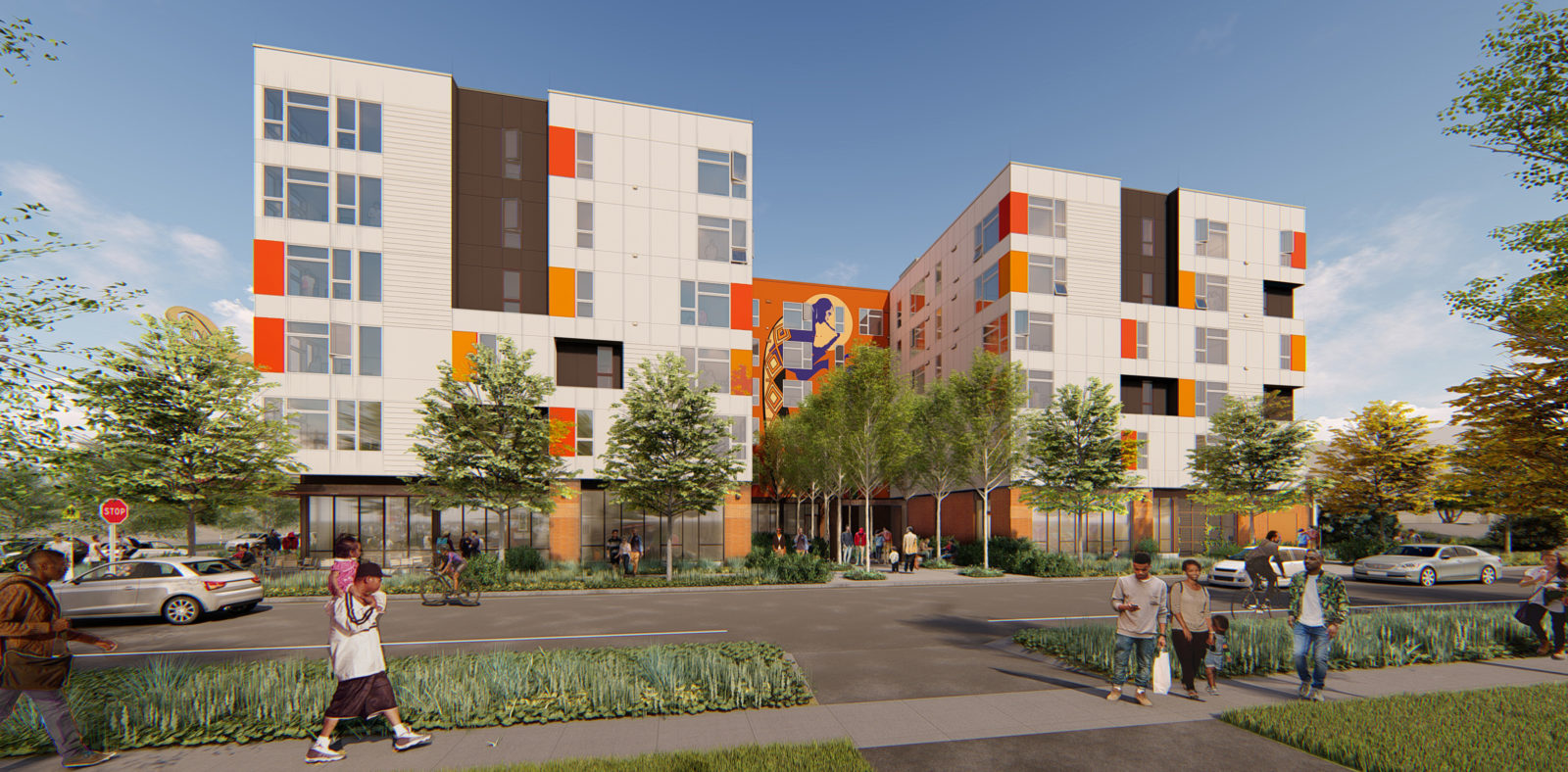Liberty Bank Redevelopment Preserves Central District Housing

On the corner of 24th & Union, east of downtown Seattle, once stood Liberty Bank, the first Black-owned bank in the Pacific Northwest. The bank was founded as a community outcry to the redlining and disinvestment in Central Seattle in the 1960s.
Last year developers broke ground on an impressive new multi-use structure that both modernizes and honors the community’s history. Through a grassroots movement to tell the story of the Liberty Bank building and Blacks in Seattle, a coalition of organizations with deep ties to the area have banded together. Leaders from Capitol Hill Housing, Africatown, Byrd Barr Place, and the Black Community Impact Alliance have advocated for the development to include affordable housing, commercial space that prioritizes minority-owned businesses, cultural art and design, and even a land trust to secure long-term African American ownership of the building.
This is a monumental effort across many groups with roots in the Central Area. We are proud of the opportunities created by this project. One hundred and fifteen affordable homes will be created in the heart of Seattle for Blacks and minorities—people who would have ordinarily been displaced into other areas of King County due to the city’s skyrocketing housing costs.
The building design will be a living marker of community history and resilience. Based on community input, including advice from descendants of Liberty Bank founders and Central District neighborhood leaders, the building honors the legacy of Liberty Bank and celebrates the vibrancy of the Black community through a $250,000 art program, historic documents, and architecture.

The Liberty Bank project prioritizes affordable housing and commercial space for minority-owned businesses.
Minorities were also considered in the construction process itself. Of the $16 million available for subcontractor work, more than 30 percent—over $4.8 million—is going to women- and minority-owned businesses, and over $2.8 million is going specifically to Black-owned businesses.
“While my community, business connections, and ideal location for work are all in Seattle, on my pay I had to move an hour plus south of Seattle where rent is cheaper. This project gives me hope that I could eventually move back to Seattle,” said a former resident, Jeanette B.
Those interested in residential leasing at the Liberty Bank Building may call 206-375-2099 starting Thursday, November 1, after 9 a.m. to leave a message indicating preference for studio, one- or two-bedroom apartments. Those who end up leasing will be able to move in once the building is completed in late February 2019. More information is available on the Liberty Bank Building website.
To receive e-newsletter updates, visit www.libertybankbuilding.org/sign-up.
 Contributor Andrea Caupain Sanderson, CEO of Byrd Barr Place, works passionately to make a positive impact on issues of racial equity and poverty. For 50 years, Byrd Barr Place has provided essential human services to Seattle residents who are struggling to make ends meet.
Contributor Andrea Caupain Sanderson, CEO of Byrd Barr Place, works passionately to make a positive impact on issues of racial equity and poverty. For 50 years, Byrd Barr Place has provided essential human services to Seattle residents who are struggling to make ends meet.
This article originally appeared in the November 2018 issue of AgeWise King County.
![Aging & Disability Services for Seattle & King County [logo]](https://www.agingkingcounty.org/wp-content/themes/sads/images/seattle-ads-logo.png)